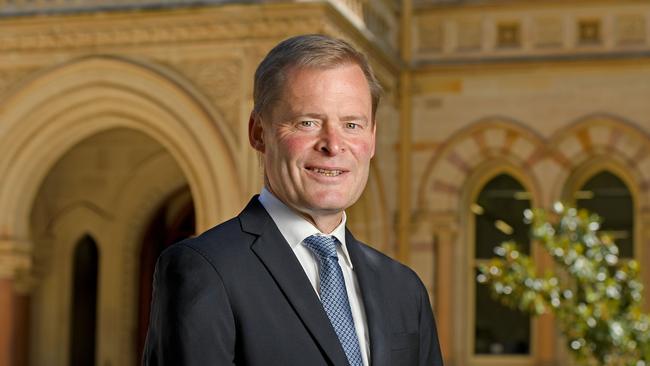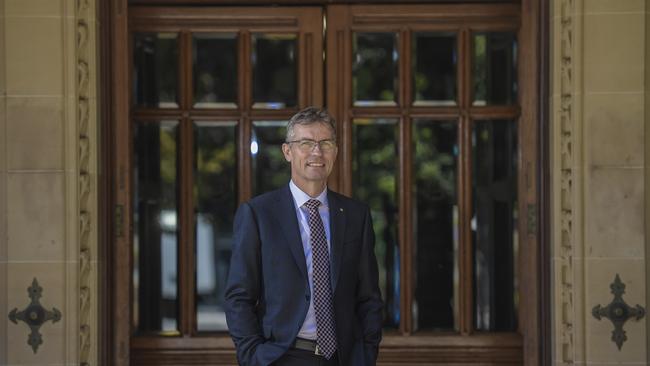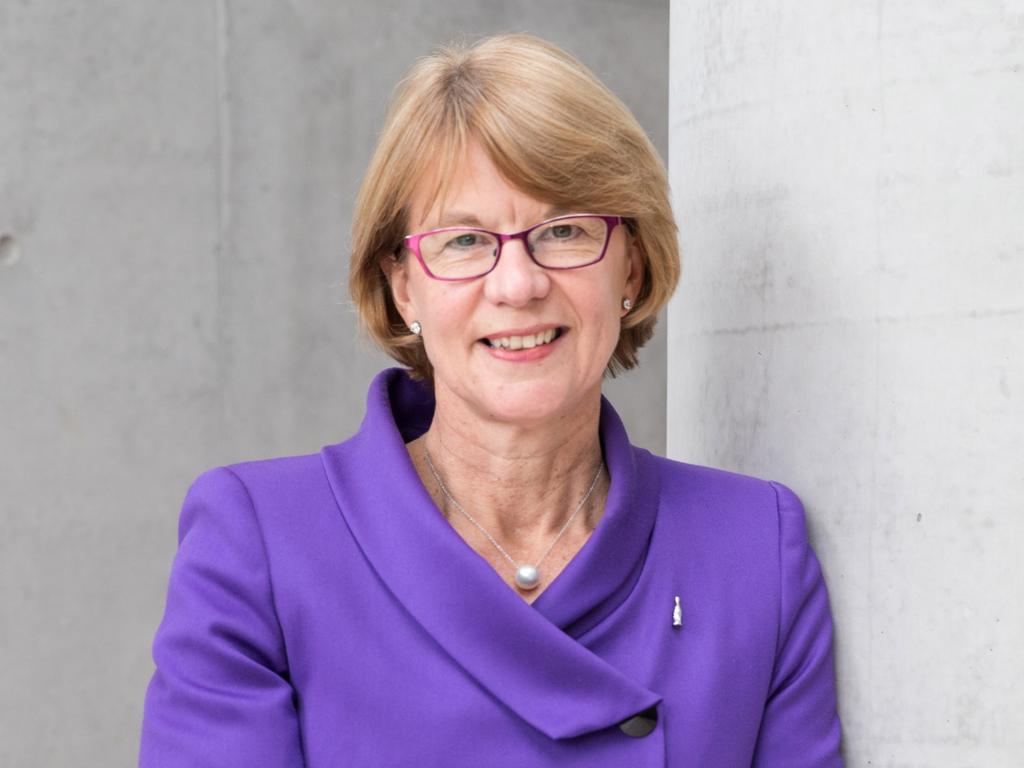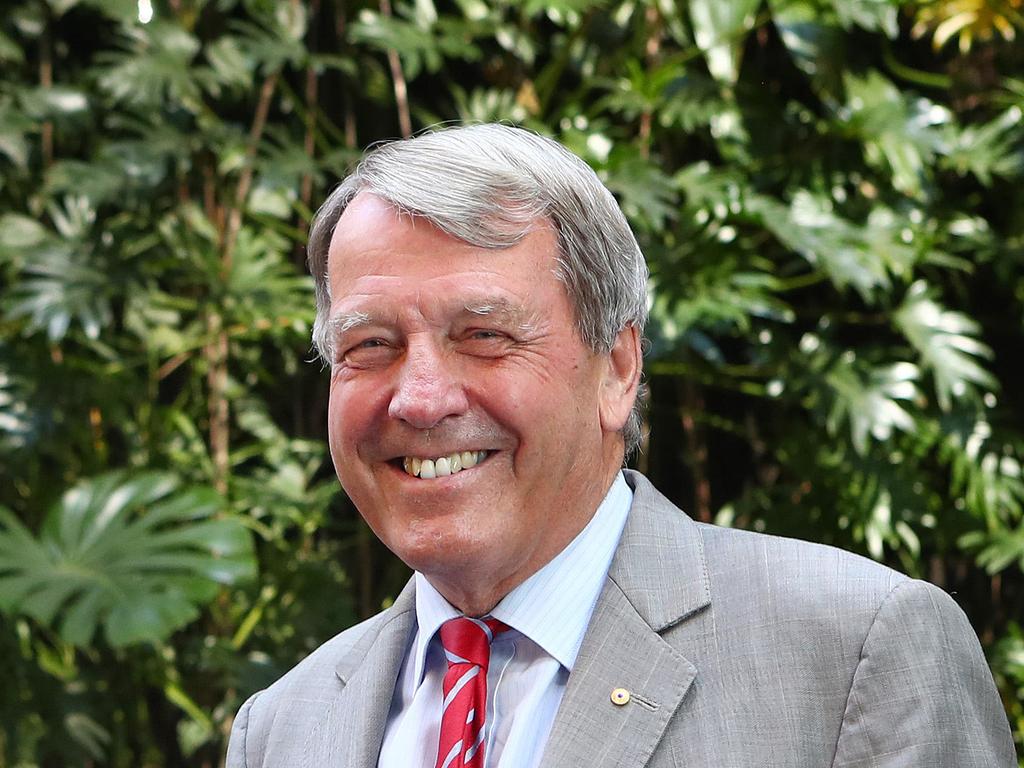University of Adelaide rocked by damning sexual harassment report
New allegations of misconduct at the University of Adelaide have surfaced in a report commissioned after the scandal involving ex-VC Peter Rathjen.

The University of Adelaide has been rocked by a damning report into a culture of sexual harassment and will establish an Integrity Unit separate from its human resources department to better deal with allegations of misconduct, bullying, discrimination and abuse.
UA Governing Council has also issued a formal and unreserved apology “to all individuals who have experienced sexual assault, sexual harassment, bullying or other unacceptable behaviour while on University premises or in the course of activities for which the University was responsible”.
The new claims of harassment and misconduct are contained in an independent KPMG report which the University commissioned last year following the scandal over former Vice-Chancellor Peter Rathjen, who was found by ICAC to have groped two women at an alumni function and had an inappropriate relationship with a third.
ICAC also found that Rathjen lied about his misconduct and his departure prompted many staff and students to ask how he had got away for his misbehaviour for so long.
In response to the ICAC investigation the UA Council and new Vice Chancellor Professor Peter Hoj commissioned KPMG Australia to conduct an independent survey which received submissions from 664 members of the UA community, of whom 351 were staff and 289 students.

While the KPMG report does not quantify the complaints or outline their nature, it says that allegations received covered the full spectrum of seriousness.
This ranged from “unwelcome remarks about hairstyle and dress” and offensive conduct such as unwanted hugs, up to “evident sexual misconduct” including inappropriate touching, grabbing and kissing, and the most serious category, “egregious sexual misconduct”, which covers coercion, sexual abuse and assault.
The report says KPMG also heard other allegations involving the use of abusive and insulting language, bullying, spreading misinformation, unwanted attention, favouritism and failures to declare conflicts of interest.
It says staff and students told KPMG that they felt the university did not have clear policies covering misconduct and that they had little or no confidence in the systems in place to protect them.
Professor Peter Hoj told The Australian that he found the report “shocking” but that the university was determined to change its culture and put new processes in place to prevent future misconduct.
“It is a very detailed, deep look at what’s happened and what they think we have to do so that things that happened in the past can’t be repeated,” Professor Hoj said.
“Zero is the only number that’s acceptable. It is very, very disappointing and you could say shocking how big a proportion of people who felt victimised felt that we had not engaged with them in the appropriate way.”
“Some felt let down, others were even distressed by how we dealt with them. That is one of the things that we really have to remove.”
The KPMG report makes 22 recommendations – all of which have been accepted – and their implementation will be led by the Chair of the University’s ICAC Response Steering Committee, Professor Katrina Falkner.
Professor Falkner told The Australian that she was particularly troubled that staff and students had told KPMG they were reluctant to come forward with allegations of misconduct.
This was why the university would immediately embrace the proposed creation of an arms-length Integrity Unit separate from its HR department as a central contact point for the investigation of complaints.
“Some members of the community have indicated they don’t feel safe coming forward with concerns either as bystanders or as people who have experienced things themselves,” Professor Falkner said.
“That is clearly very disappointing and very concerning. Because our community was so brave to share their experiences, they have told us what we need to do. Making changes to process, structure and culture will lead to a system that stops these things from happening again.”
Professor Hoj said it was his understanding that the university had not recorded any student-related cases of sexual assault on campus in the past two years.
Over that same period there were 18 documented cases of sexual harassment, 10 of them in 2019 and eight in 2020.
Professor Hoj said it was possible that other past cases could emerge if UA staff and students had more confidence in the reporting processes.
“In terms of University-related incidents with students, it’s our best understanding that the reported numbers of sexual assaults in 2019 and ’20 was zero,” he said.
“But what we need to acknowledge is when you have procedures and processes that are not streamlined, we can’t be sure that everything that happened is reported.
"If all this works really well, until such time that the culture change is perfect, we could well see that more people feel comfortable in reporting.”







